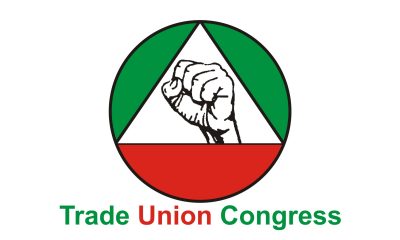Business
Economic Crisis: CBN Forecast Further Naira Fall In Jan

Barely five days to the end of the year 2020, the Central Bank of Nigeria (CBN), has disclosed that a survey carried out by its Statistics Department revealed that the Naira was expected to depreciate further in January, 2021.
The report, titled, ‘December 2020 Business Expectations Survey Report’, added that there might also be a steady rise in interest rate from December till the next six months.
The Naira witnessed a sharp fall in recent weeks, reaching its lowest on November 30, 2020, when it exchanged for N500/$1.
Since then, the Dollar has been hovering between N460 and N470.
As at last Friday, however, $1 exchanged for N465 in the parallel market.
Also, the Nigerian economy had on November 21 slid into its second recession in five years when the economy shrank again in the third quarter.
The recession is said to be the worst in 36 years, according to the data obtained from the World Bank.
The Federal Government and some economists had expressed optimism that the country would exit the recession in 2021.
Meanwhile, in the 11-page survey report, the CBN said it conducted the survey online from December 7 to 11, with a sample size of 1,050 businesses nationwide.
It noted that a response rate of 91.3 per cent was achieved and that the sample covered the agriculture/services, manufacturing, wholesale/retail trade and construction sectors.
It added that the respondent firms were made up of small, medium and large corporations covering both import-oriented and export-oriented businesses.
The report partly read, “Respondent firms expect the naira to depreciate in the current month and next month but appreciate in the next two months and the next six months.
“Inflation level is expected to rise in the next six and 12 months as firms expect the average inflation rate in the next six months and the next 12 months to stand at 13.24 and 14.51 per cent, while borrowing rate is expected to rise in the current month, next month, next two months and the next six months with indices of 19.2, 14.9, 14.7 and 14.3 points.”
In the survey, respondent firms expressed pessimism on the macro economy, while their outlook on the volume of business activities, average capacity utilisation, the volume of total order and financial condition (working capital) were positive.
The CBN stated that respondent firms identified insufficient power supply, unfavourable economic climate, competition, high interest rates, unclear economic laws, financial problems, unfavourable political climate, access to credit, insufficient demand, lack of equipment, lack of materials input, and labour problems as major factors constraining business activities in December, 2020.
In a separate development, the apex bank in a communiqué number 133 of the Monetary Policy Committee meeting held on November 23 and 24 and signed by the Governor of the Central Bank of Nigeria, Godwin Emefiele, said the aggregate domestic credit grew by 7.61 per cent in October, 2020, compared with 7.35 per cent in the previous month.
This, it said, was as a result of the bank’s policy on Loan-to-Deposit Ratio, supported by its interventions in the various sectors of the economy, adding that total bank credit grew in the banking industry by N290.13billion between the end of August and the middle of November.
The communiqué added, “Total gross credit by the banking industry stood at N19.54trillion as at November 13, 2020, compared with N19.33trillion at the end of August, 2020, an increase of N290.13billion.
“When compared with N15.56trillion at the commencement of the LDR policy in May, 2019, total gross credit increased by N3.97trillion, these loans were granted mainly to manufacturing (N738billion), general commerce (N874billion), agric and forestry (N301billion), construction (N291billion), and ICT (N231billion), just to mention a few.”
The communiqué noted further that the MPC observed the gradual improvement in the manufacturing and non-manufacturing Purchasing Managers’ Indices, which rose to 50.2 and 47.6 index points respectively, in November, 2020, compared with 49.4 and 46.8 index points in October, 2020.
It added, “This development signposts an increase in economic activities, driven by growth in new orders, improved supply delivery time, rising production levels and new export orders. The employment level index component of the manufacturing and non-manufacturing PMIs also improved in November, 2020 to 47.3 index points and 46.7 index points, respectively, compared with 46.0 index points and 44.2 index points in October, 2020.
“The committee, however, noted the likely downside risk to growth of the recent unrest in the country, warning that this may adversely impact economic recovery in the near term.”
Meanwhile, on respondents’ opinion over the control of inflation, the CBN report said the respondents decried the poor management of inflation by the government.
It said, “Respondent firms expressed dissatisfaction with the management of inflation by the government, with a negative net satisfaction index -33.5 in December, 2020.”
On the business outlook, the report showed that at -15.2 index points, the overall confidence index on the macro economy was pessimistic in December, 2020 while respondents were optimistic in their outlook for the month of January, 2021 with a confidence index of 29.4.
The respondents also expressed optimism in the overall business outlook for February and June, 2021 as shown in a greater confidence of the economy with 39.2 and 55.2 index points, respectively.
It added, “The pessimism on the macro economy in the current month was driven by the opinion of respondents from agriculture/services (-10.4 points), wholesale/retail trade sectors (-1.7), construction (-1.6 points) and manufacturing sectors (-1.6 points).
“The major drivers of optimism for next month were agriculture/services (16.8 points) and manufacturing sectors (10.3 points). Further analysis revealed that businesses that were neither import and export-oriented (-9.5 points), both import and export-oriented (-3.4 points), importers (-2.0 points) and exporters (-0.2 points), drove the negative business outlook for the month under review.”
In terms of employment and expansion plans, the report said respondent firms’ opinion on the volume of business activities indicated a favourable business outlook for January and February, 2021, with indices of 47.7 and 55.0, respectively.
It added, “Businesses also hope to employ in January and February, 2021 as the outlook was positive at 18.5 and 21.5 index points, respectively.
“The breakdown by sector showed that the agric/services sector with (20.5 points) has the highest prospect for employment in the next month, followed by construction sector with an index of 17.9 points, manufacturing sector (16.7 points) and wholesale/retail trade (13.4 points).
“Respondents were also optimistic about the volume of business activities and employment outlook index in the next six months as all indices were positive. An analysis of businesses with expansion plans in January showed that the agric/services sector and construction sector have the highest disposition to expand with 52.9 index points each.”
Business
Lokpobiri Condemns Abandoned Refinery Project in N’Delta … Vows Revival
Business
FG Unveils Industrialisation Strategies In 2025 … To Conduct MSMEs Census
Business
Coy Strengthens Commitment To Nigeria’s Energy Future
-
Niger Delta4 days ago
NACAT Inaugurates South-South Office In A’Ibom Against Corruption
-
Sports4 days ago
AFCON: Eguavoen, Emenike predict S’ Eagles’ chances
-
Rivers2 days ago
Appreciate God, Elder Statesman Urges Nigerians
-
Business4 days ago
Bayelsa Recommits To Infrastructure, Sectoral Dev … Rakes In N227.185b From IGR
-

 Featured2 days ago
Featured2 days agoTUC Opposes FG’s Proposed Toll Gate On Federal Roads, Rejects Electricity Tariff Hike
-

 News2 days ago
News2 days agoBe Consoled, God Who Gives, Also Takes, Fubara Tells Principal Secretary
-

 News4 days ago
News4 days agoS’South Deputy Govs Pay Condolence Visit To A’Ibom Colleague
-

 Niger Delta4 days ago
Niger Delta4 days agoHYPREP Presents Scholarship Grants To 300 Ogoni Postgraduate Students

